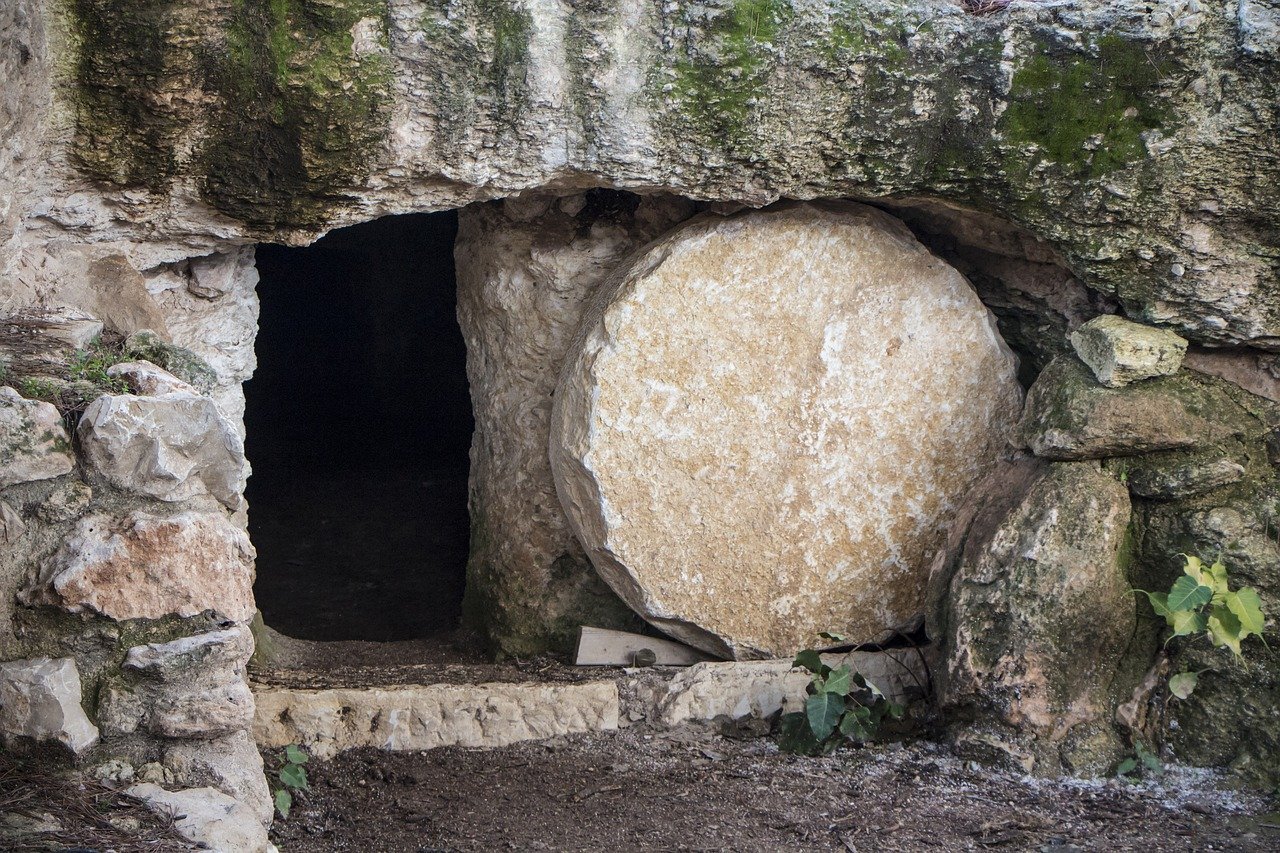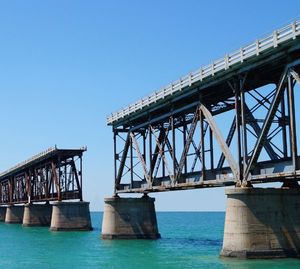
The term ‘Easter’ is used in the Authorised Version of the Bible to describe the time of year when Jesus was crucified (Acts 12:4). Many Christians are unhappy with the word because of its pagan connection, but we should not let this obscure the enormous importance of the death and resurrection of Christ.
‘Passover’ is the correct term to use. Christ is our Passover, says Paul, linking him with the Old Testament Passover, when God’s people were delivered from judgement through the death of the sacrificial ‘Passover’ lamb (1 Corinthians 5:7; Exodus 12).
At this time of the year the Northern hemisphere enjoys the vitality of Spring, when creation breaks forth into new life. But for Christians it is not a seasonal event we celebrate, but a saving event with innumerable eternal blessings in Christ.

Conflict on the cross
Christ was crucified on a cross, between two thieves, at the place called Calvary. This is a fact of history confirmed by religious and secular historians. But what does it mean?
Firstly, on the cross, we witness conflict. It is a difficult thing to die, for the body and mind fights against it. We have a desire to live. Yet the sinless Saviour, who said or did no wrong, and against whose nature it was to die, ‘tasted death for every man’.
Christ dealt a blow to everything that bars our way to peace with God and eternal glory. He took upon his shoulders the burden of our sin, the hell we deserve, and the judgement of God. In so doing, he wiped out the damning evidence of the commandments, which were against us, and defeated Satan (Colossians 2:14-15).
The Ten Commandments condemn us as sinners; they expose our guilt and wretched condition before a holy God. They show us the exceeding sinfulness of our sin and our lost condition. If we break the law in one point, in thought, word or deed, we transgress the whole law, and deserve eternal punishment (James 2:10).
The law is designed to drive us to Christ, but when we come to Christ, we are no longer under the law for salvation or righteousness. Christ has completely annulled the law in terms of making us righteous with God. Christ nailed the law to the tree of Calvary.
The law condemns sinners, but Christ comforts sinners with his imputed righteousness and forgives our transgression. The law convicts us of sin, but Christ has consecrated us by his sacrifice and blood.
Christ was in conflict with evil and triumphed over it, so that the power of sin can be broken in our lives, through the ministry of the indwelling Holy Spirit and the Word of God. We now have liberty through Christ.

Condemnation on the cross
Secondly, the cross bears witness to condemnation. The religious leaders mocked Christ, jeering: ‘He saved others; himself he cannot save'(Matthew 27:42). ‘He saved others; let him save himself, if he be the Christ, the chosen of God’ (Luke 23:35).
The people reviled him, crying ‘save thyself’ (Matthew 27: 40). The soldiers said: ‘If thou be the King of the Jews, save thyself’ (Luke 24:37). Although one of the thieves finally repented, they both railed and blasphemed, calling out, ‘If thou be the Christ, save thyself and us’ (Luke 23:39).
Thousands heard the message of salvation during his ministry. But they chose to misinterpret the Saviour’s words, and mocked him for not saving himself or them from physical death. But he was engaged in a different purpose, namely, to save his people from eternal death.
At his birth he was given a wonderful name, Jesus. He was called ‘Jesus: for he shall save his people from their sins’ (Matthew 1: 21). Saving his people was his mission. His sinless life and substitutionary death resulted in ‘so great a salvation’ for his elect.
Cries from the cross
Thirdly, there were Christ’s cries from the cross. He criedout: ‘My God, my God, why hast thou forsaken me?'(Matthew 27: 46). The thrust of this penetrating statement is that Jesus endured alienation and rejection from his own Father. We cannot begin to appreciate the depths of his desolation. Silence and reverential awe is the appropriate response.
At the cross we have the great exchange. Christ took my sin, but I take his righteousness. He was made sin, yet he was sinless. He was the just, dying for the unjust. He was rejected, that I might be accepted in the Beloved.
He was the Holy One, dying for the unholy. He took the weight of my sin; I take the worth of his atonement. He took the wrath of God; I take the wealth of heaven. He took my filthiness; I take his purity.
He took my guilt; I take his innocence. He took my faults; I take his faultlessness. He took my spiritual poverty; I take the riches of his grace. He took my villainy; I take his virtue. He took my corruption; but I am complete in him. He took my vileness; I take his victory. He took my depravity; I take his deliverance. All this, and much more, was bound up in the cry of the forsaken Saviour.
Satisfaction from the cross
At the end he cried with a loud voice: ‘Father, into thy hands I commend my spirit’ (Luke 23:46). His mission had been accomplished and he said: ‘It is finished’ (John 19:30). Christ had offered one sacrifice for sins for ever (Hebrews 10:12). The work of saving souls was done once and for all.
It can never be repeated in the Roman Catholic mass. We cannot add to this perfect work, or take away from it. Do we need good deeds or good works to save us? Perish the thought!
To say that I am saved by the cross plus my good works, is to rob Christ of his achievement. Not for one moment must we give cognisance to such nonsense. Calvary was the all-sufficient work of God for sinners, once and for all.
Only the blood and obedience of Christ can save. God requires nothing more, or nothing less. This is the wonder of the gospel of the free grace and mercy of God.
After the cross
After the cross came the tomb. Joseph of Arimathea, a disciple of Jesus, placed Christ’s lifeless body in a new tomb carved out of the rock (Mark 15:46). Now there was no more suffering for the Saviour, only a pause in the tomb until the predestined moment of glorious resurrection.
The New Testament has little to say about the hours when Christ’s body lay in the tomb. Peter tells us that, by the Spirit, Christ ‘went and preached unto the spirits in prison’. The Creed says: ‘He descended into hell’. Dr Morris writes in the Defender’s Study Bible (p.1398): ‘While in Hades in the Spirit, he “preached” – that is, proclaimed – his victory over death and Hades’ (1 Peter 3:19; Colossians 2:15; Revelation 1:18).
However, there is no support for current teaching that Jesus did battle with Satan after his death. Remember, Jesus gave his life as a ransom for many; Satan did not take it from him.
We also see the passiveness of the body of Jesus. Jesus was truly dead; it was no hoax, as some would have us believe. Christ was submissive to genuine death; it was a voluntary and obedient act. He elected to die for his elect people.
But Christ was not powerless in his death. On the contrary, he rendered Satan powerless and conquered death (Hebrews 2:14). Satan has been permanently disabled by Christ’s work on the cross.
Victory on the cross
The price for sin has been paid in full. The sacrificial blood has been shed and the people of God have been purchased thereby. Calvary was a victory, not a defeat. The body of Christ lying in the tomb was confirmation of his death, and that death is important to the believer. Why? Because we, as believers, died with Christ. We died to sin, to its claims, its penalty and its power (Romans 6:6-7).
Furthermore, as a result of Christ’s death, we should have no fear of death or bondage (Hebrews 2:15). Do not let bereavementdefeat us when we lose a loved one. Scripture says, ‘O death, where is thy sting? O grave, where is thy victory?’ (1 Corinthians 15: 55).
Admittedly, death is still an enemy to the people of God. But death could not keep the Saviour and it will not keep us either. In the great resurrection at the end of time, his victory over death will be our victory over the grave: ‘The last enemy that shall be destroyed is death’ (1 Corinthians 15:26).
Meanwhile, his rest brings me eternal rest. We are on our way to Immanuel’s land. Let us therefore rest in his love.














